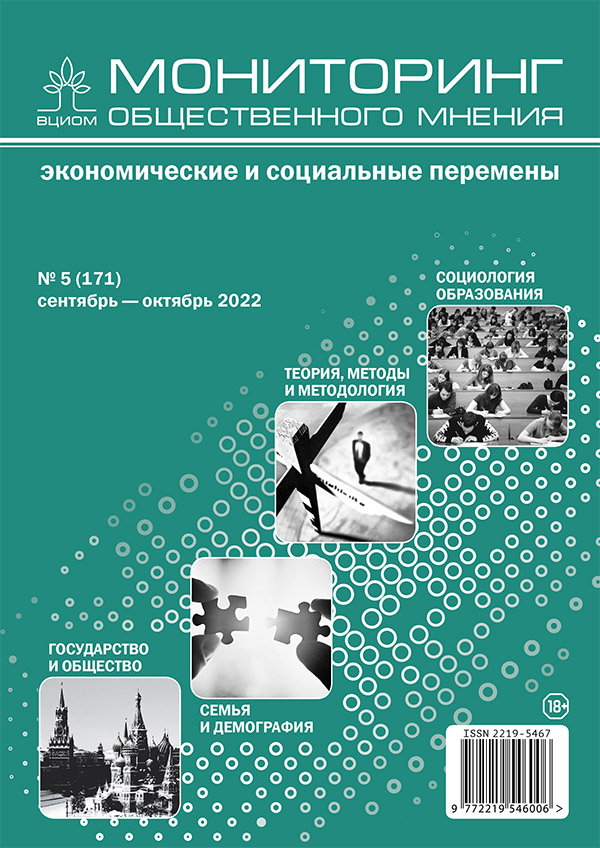Representation of Perceived Safety of the Urban Environment in the Neighborhood Online Communities of Saint Petersburg
DOI:
https://doi.org/10.14515/monitoring.2022.5.2228Keywords:
perceived safety, neighborhood, neighborhood online community, urban environment, environmental components, qualitative text analysisAbstract
The article analyses the representation of perceived safety of the urban environment, which is translated in the neighborhood online communities of Saint Petersburg. We conducted research into the subjective perception of safety by the communities living in the historical district of the city. The research was based on different theoretical approaches to understanding of the phenomenon of perceived safety. The subject of the study is the discourse presented on the pages of the public social media. The discourse is formed by neighbors as a result of their interaction with the environment. The research focused on the narratives of neighbors regarding those elements of the environment that cause feelings of anxiety and worrying. The methodological basis of the research is the use of mixed methods of text analyses, in particular, a combination of the qualitative analysis of statements and the content analysis of concepts related to safety issues. The theoretical framework is Wittgenstein’s approach which focuses on the relativity of language meaning and argues that the meaning of a concept is based on its interpretation and can be traced through the accompanying words which this concept occurs with together in verbal or written speech. We have identified the components of urban environment that appear in the discourse of communities as significant in terms of the perceived safety: a) agents that influence the perceived safety of the neighborhood community (tour guides, tourists, visitors of restaurants, etc.); b) environmental objects associated with the perceived safety (the state of infrastructure, pedestrian zones, closed courtyards and front entrances); c) spontaneous practices of the community for ensuring safety. The main conclusion of the study is that neighborhood communities are susceptible to the peculiarities of the living environment, which is reflected in the discourse formed by neighbors in online communities. This discourse manifests itself in the categorization of subjective assessments of risks and threats and presents opportunities for a detailed analysis of perceived security in general. The results of the study may be of interest to the federal authorities of the Russian Federation (for example, experts from the Ministry of Construction and Housing and Communal Services of Russia) when improving the current methodology for creating an index of the quality of the urban living environment.
Downloads
Published
How to Cite
Issue
Section
License
Copyright (c) 2022 Monitoring of Public Opinion: Economic and Social Changes Journal (Public Opinion Monitoring) ISSN 2219-5467

This work is licensed under a Creative Commons Attribution-NonCommercial-ShareAlike 4.0 International License.






